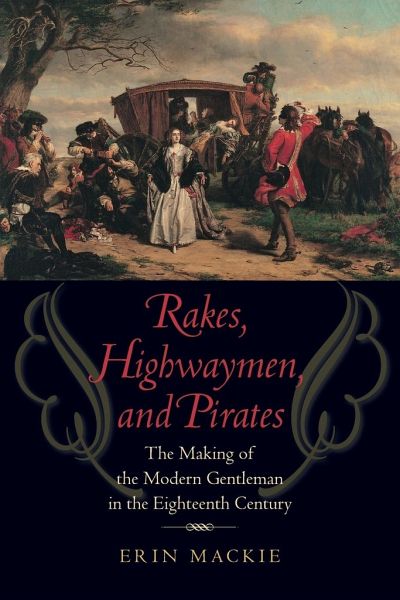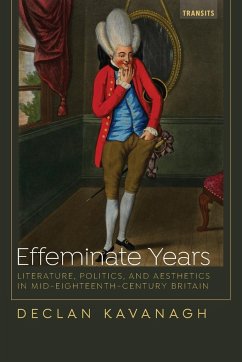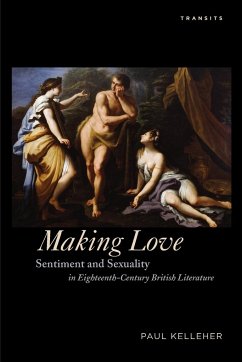
Rakes, Highwaymen, and Pirates
The Making of the Modern Gentleman in the Eighteenth Century
Versandkostenfrei!
Versandfertig in 1-2 Wochen
33,99 €
inkl. MwSt.
Weitere Ausgaben:

PAYBACK Punkte
17 °P sammeln!
Erin Mackie explores the shared histories of the modern polite English gentleman and other less respectable but no less celebrated eighteenth-century masculine types: the rake, the highwayman, and the pirate. Mackie traces the emergence of these character types to the seventeenth and early eighteenth centuries, when traditional aristocratic authority was increasingly challenged. She argues that the development of the modern polite gentleman as a male archetype can only be fully comprehended when considered alongside figures of fallen nobility, which, although criminal, were also glamorous enou...
Erin Mackie explores the shared histories of the modern polite English gentleman and other less respectable but no less celebrated eighteenth-century masculine types: the rake, the highwayman, and the pirate. Mackie traces the emergence of these character types to the seventeenth and early eighteenth centuries, when traditional aristocratic authority was increasingly challenged. She argues that the development of the modern polite gentleman as a male archetype can only be fully comprehended when considered alongside figures of fallen nobility, which, although criminal, were also glamorous enough to reinforce the same ideological order. In Evelina's Lord Orville, Clarissa's Lovelace, Rookwood's Dick Turpin, and Caleb Williams's Falkland, Mackie reads the story of the ideal gentleman alongside that of the outlaw, revealing the parallel lives of these seemingly contradictory characters. Synthesizing the histories of masculinity, manners, and radicalism, Rakes, Highwaymen, and Pirates offers a fresh perspective on the eighteenth-century aristocratic male.














